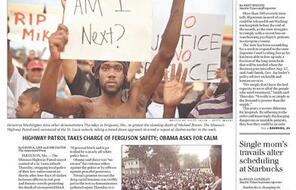Breadcrumb
This resource is part of:
Part Four: Interracial Democracy
Video Length
12:53Subject
- History
Language
English — USUpdated
Part Four: Interracial Democracy
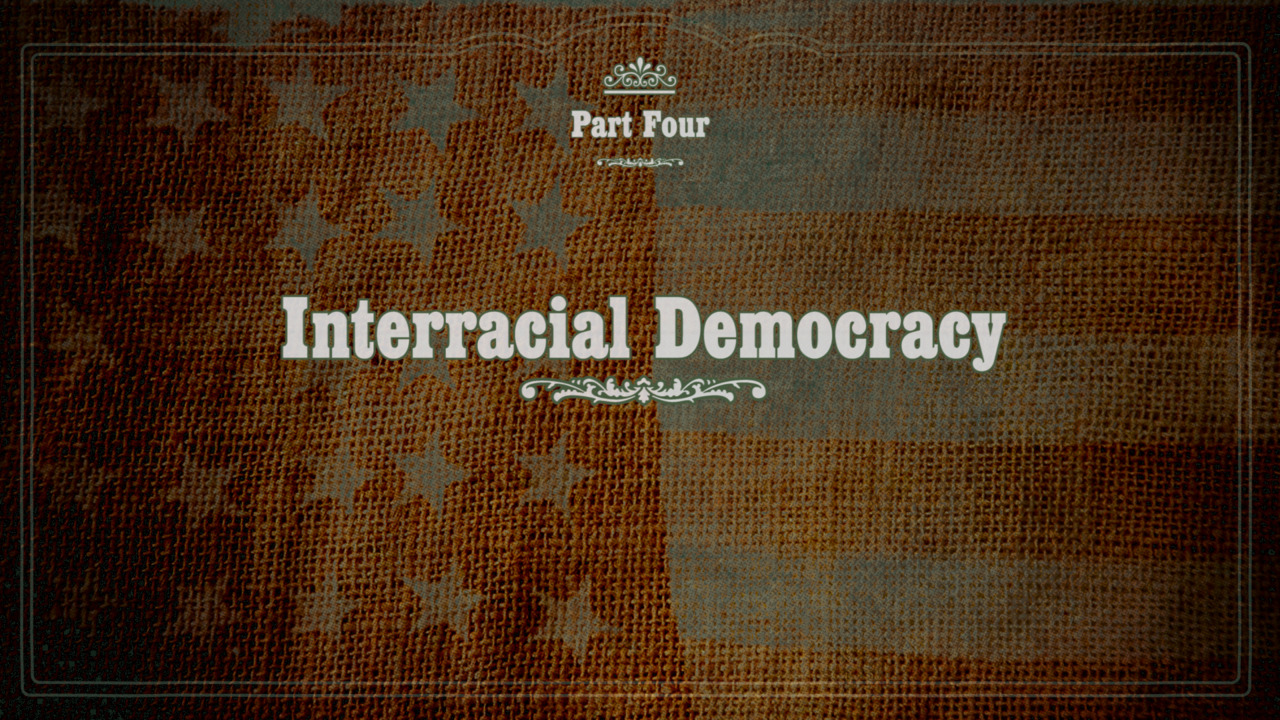
[MUSIC PLAYING]
Black people in the South embraced politics like they had never imagined, and from the earliest Reconstruction election, especially in 1868, hundreds of African American politicians were elected. There's your most visible obvious revolution out of Reconstruction, the black politicians.
Black people, having experienced non-personhood, knew that they had to create new democratic practices and institutions. Now they had every reason to resent whites. They had every reason to equate whiteness with slavery. They had every reason to maybe want to destroy the land that they worked for nothing, but instead they thought their blood and sweat, their labor, built something that they now wanted the fruits and benefits of.
And so they wanted the South to succeed. They wanted it to be productive. They wanted it to be economically successful. And having asked for rights themselves, they didn't think it would be fair to deny it to other people. And so what they did was they made alliances with poor whites.
[MUSIC PLAYING]
Radical Reconstruction is the term we use to describe the period after Congress passes the Reconstruction Act of 1867, which sets in motion the creation of new governments throughout the Southern states based on what they call manhood suffrage. That is men voting without any racial qualification. That wasn't the end of Radical Reconstruction in congressional terms. You have the impeachment of Andrew Johnson in 1868, which fails. The Senate comes one vote short of actually removing him from office.
You have the 15th Amendment passed by Congress 1869, which prohibits the states from denying the right to vote to anyone because of race. It tries to make black suffrage now national. The Reconstruction Act only applied to the South. Now the border states and the North-- black men are supposed to vote throughout the country. And finally, in 1875, you get the final act of Radical Reconstruction, which was the Civil Rights Act of 1875, which tried to declare illegal racial discrimination in public accommodations.
[MUSIC PLAYING]
So Radical Reconstruction lasts about 10 years up through 1877, and during that period, Congress is continuing to attempt to underpin some notion of equality for the former slaves, now black American citizens. Now Radical Reconstruction also refers to what's going on in the South. New governments are created in all the Southern states with African American men voting in large numbers for the first time and holding office for the first time. And these radical governments attempted with various measures of success to rebuild the South.
The way that African Americans reimagine themselves as political beings was something that was very important in terms of how Reconstruction manifested itself on the local everyday level in the South.
Now most offices were held by whites. The old view of Reconstruction used to call this the period of black supremacy, which it wasn't. Most major offices were held by whites. But nonetheless, in a country where no black people, virtually, had held any public office before the Civil War, suddenly you have by my estimate about 2000, maybe, black men who held public office ranging from US Senate and Congress down to members of state legislatures, state officials of one kind or another, down to justices of the peace, sheriffs, school board officials-- in other words, was all levels of political society.
We always hear about Reconstruction as a period in which race triumphs the adequate functioning of government, because there is such racism among the white population that they are unable to work with African Americans. In fact, that's really not true. In the early years of the political reconstruction of the South, the late 1860s, the early 1870s, you're going to get, in many of the Southern states, coalitions where African Americans and especially poorer whites work together fine.
Many Southern whites are OK with voting with African Americans. They're OK with the new state constitutions, because one of the things the new state constitutions do in the South is they use state governments to rebuild the shattered states. They rebuild the schools. They rebuild the hospitals. They rebuild orphanages. They put money into railroads. And that was very popular among both black voters but also poor white voters. So there was a moment when African Americans and whites did work together.
These Reconstruction governments were in large part interracial political experiments. All of these people had never before worked together within the realm of politics, all of whom are coming out of the system of slavery were now sitting across the aisle from one another, next to one another, trying to figure out how do we reconstruct our constitutions, how do we rewrite our state constitutions? How do we pass new laws? How do we guarantee at the state level in Southern states, which had denied black people rights of citizenship, had denied them citizenship all along throughout American history, how do you reconstruct a new state, not just a new society, a new nation, but a new state?
One particular experiment is the South Carolina Constitutional Convention of 1868, and this was convened, as all the Southern states convene them, to rewrite the state constitution. And so what happens in South Carolina, which is quite remarkable is that a majority black delegation comprised of formerly enslaved people and also free people of color from before the Civil War came together and along with sympathetic whites and other folks who got elected to the delegation, to rewrite the state constitution. And what comes out of that are a number of incredibly progressive laws and pieces of policy.
In particular, you see the support for and the enshrinement of universal public education, integrated co-educational public schools that are supported by taxes. Because the delegates, particularly the black delegates at the South Carolina Constitutional Convention, understood that without good schools, without full opportunity to get a great education, the promise of freedom was always going to be constrained, was always going to be hampered if black people could not get the kinds of educations that would then give them access to a better life.
[MUSIC PLAYING]
Probably the most long-lasting achievement of Radical Reconstruction was the creation of the first public school systems in the South. There had been virtually no public education in the South before the Civil War. These schools were almost all racially segregated. In New Orleans, there were integrated schools, but basically in most places there weren't. But nonetheless, the establishment of public schools was something that was obviously fundamental and necessary in the South, and that lasted well after the end of Reconstruction. There were also efforts, as I say, to rebuild the Southern economy, railroad construction. These states passed the first civil rights laws in American history at the state level outlawing various kinds of discrimination.
[MUSIC PLAYING]
And even on a more, I guess, down-to-earth basis, the presence of sympathetic local officials-- police, sheriffs, judges, justices of the peace, the fact that blacks are now serving on juries for the first time-- meant that the law just, sort of, operated in a more egalitarian way. If a black person was accused of a crime, he had a jury with some black people on it. Or if there was a black sheriff, he would try to treat everybody pretty much the same.
This was a moment in which the idea of a white supremacy was fundamentally challenged. The world was turned upside down from the perspective of white Southerners, and that was remarkable.
[MUSIC PLAYING]
Certainly many white Southerners benefited from the Reconstruction governments, even though they tended to oppose them. But the notion that these are black governments and are mostly favoring blacks, which is a considerable exaggeration because a lot of what they're doing is trying to rebuild the whole region, becomes more and more of a political weapon against Reconstruction. There were other issues as well. It costs money to do all these things. Building a school system out of scratch costs money. Taxes went up. White people owned more property than black people. They paid a higher percentage of the taxes.
But the basic reason for the opposition was just pure racism. Three or four years after the end of slavery, most white Southerners just found it impossible to accept the idea of blacks exercising genuine political power. They just found that white supremacy was the rallying cry of the opposition to Reconstruction, and by the 1870s, that is undermining white support where it existed for the Reconstruction regimes.
[MUSIC PLAYING]
Part Four: Interracial Democracy
How to Cite This Video
Facing History & Ourselves, “Part Four: Interracial Democracy”, video, last updated May 13, 2015.
You might also be interested in…
Current Events in the Classroom

We the People: Expanding the Teaching of the US Founding

Developing Student Agency through History and Literature: Middle School Curriculum

Supporting Question 4: Memory of the Founding

Summative Performance Task & Taking Informed Action

Resources for Civic Education in California

Resources for Civic Education in Massachusetts

The 1968 East LA School Walkouts
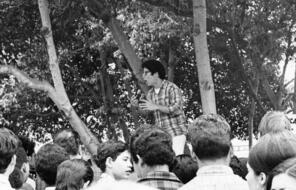
California Grape Workers’ Strike: 1965–66
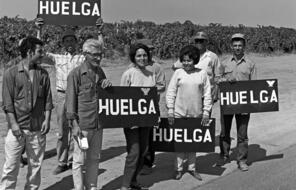
The Reconstruction Era and the Fragility of Democracy
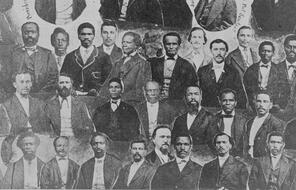
The Reconstruction Era Primary Sources
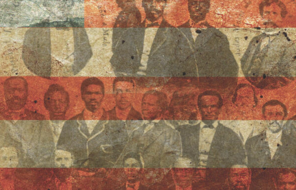
The Importance of a Free Press
